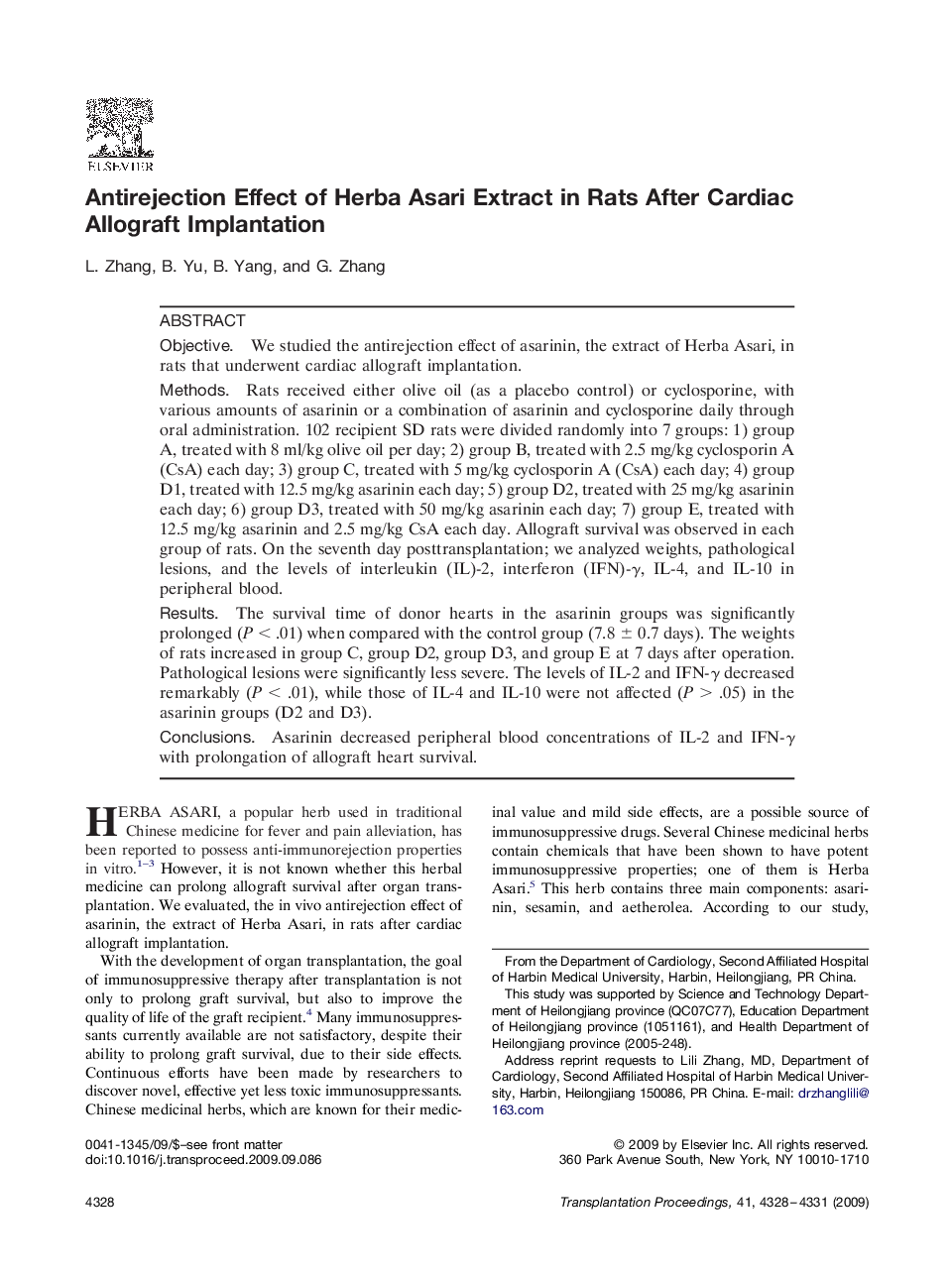| Article ID | Journal | Published Year | Pages | File Type |
|---|---|---|---|---|
| 4258513 | Transplantation Proceedings | 2009 | 4 Pages |
ObjectiveWe studied the antirejection effect of asarinin, the extract of Herba Asari, in rats that underwent cardiac allograft implantation.MethodsRats received either olive oil (as a placebo control) or cyclosporine, with various amounts of asarinin or a combination of asarinin and cyclosporine daily through oral administration. 102 recipient SD rats were divided randomly into 7 groups: 1) group A, treated with 8 ml/kg olive oil per day; 2) group B, treated with 2.5 mg/kg cyclosporin A (CsA) each day; 3) group C, treated with 5 mg/kg cyclosporin A (CsA) each day; 4) group D1, treated with 12.5 mg/kg asarinin each day; 5) group D2, treated with 25 mg/kg asarinin each day; 6) group D3, treated with 50 mg/kg asarinin each day; 7) group E, treated with 12.5 mg/kg asarinin and 2.5 mg/kg CsA each day. Allograft survival was observed in each group of rats. On the seventh day posttransplantation; we analyzed weights, pathological lesions, and the levels of interleukin (IL)-2, interferon (IFN)-γ, IL-4, and IL-10 in peripheral blood.ResultsThe survival time of donor hearts in the asarinin groups was significantly prolonged (P < .01) when compared with the control group (7.8 ± 0.7 days). The weights of rats increased in group C, group D2, group D3, and group E at 7 days after operation. Pathological lesions were significantly less severe. The levels of IL-2 and IFN-γ decreased remarkably (P < .01), while those of IL-4 and IL-10 were not affected (P > .05) in the asarinin groups (D2 and D3).ConclusionsAsarinin decreased peripheral blood concentrations of IL-2 and IFN-γ with prolongation of allograft heart survival.
